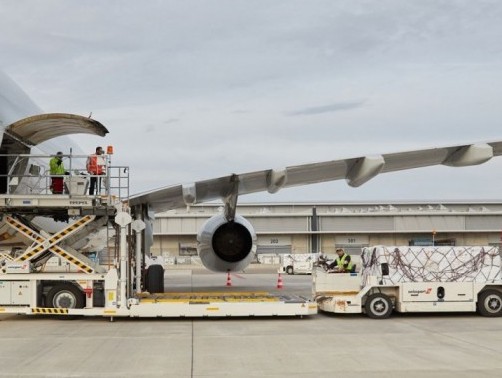
Project activity for airline repair cos up despite pandemic: U-Freight
Hong Kong-based freight forwarder and logistics company, U-Freight says that despite the crisis caused by the Covid-19 pandemic, project activity for airline repair companies has been holding up.

Hong Kong-based freight forwarder and logistics company, U-Freight says that while the crisis caused by the Covid-19 pandemic has caused a significant reduction in movements of aircraft spares, engines, stabilisers, landing gear, and electronics, its project activity for airline repair companies has been holding up somewhat.
Bill Rauld, sales manager, Latin America at U-Freight North America, says that aircraft still flying will continue to go technical in remote parts of the world, or they may even be involved in relatively minor accidents such as a runway overshoot or heavy landing.
Very often, there won’t be any alternative to repairing the plane in situ, and this can involve a major logistics operation, he adds.
Also Read: U-Freight well-placed for stricter air cargo security screening
“We might have to send over portable hangars in, perhaps, three seafreight containers, plus all the tools and so forth, in order to carry out the repair.”
There are a couple of companies that keep U-Freight reasonably busy in this sub-sector of the market, recently in places including Mozambique, Turkey and Surinam. Usually, most of the tools and material will then need to be returned to base.
Meanwhile, with the global airline industry in the grip of the Covid-19 crisis, the future for the aerospace market generally is “uncertain at best” says Rauld. However, many companies are using this time to update their avionics and do regular maintenance. “There are still opportunities, but they are becoming rarer and more competitive.
With limited cargo space, there may be opportunities for more hand carries for AOGs (aircraft-on ground shipments),” Rauld adds. What is really needed, is for the travel restrictions and bans that governments have imposed around the world as a result of the crisis caused by Covid-19 to be lifted and for the world’s airlines to start flying again.
However, Rauld is under no illusions that this will be a quick or easy process. For a start, many aircraft will need to be recertified before they can take to the air again. Although, this could generate a certain amount of spares movement for U-Freight, he believes.
Aerospace demand is unpredictable at the best of times, with widely varying SKUs (stock-keeping units). Most shipments require “white glove” service as they are usually urgent, with many smaller parts transported directly by courier service.
There are many trade lanes in the aerospace logistics sector, but the most common for U-Freight are South-East Asia and Europe.
Rauld concludes, “U-Freight has constantly tried to enhance its logistics services in order to expand its presence in the global market for aviation and aerospace supply chain management.
“At some of our freight hubs, we have worked with the local customs authorities and inbound carriers, to develop a system that enables us to clear and deliver shipments within three hours of arrival.”

